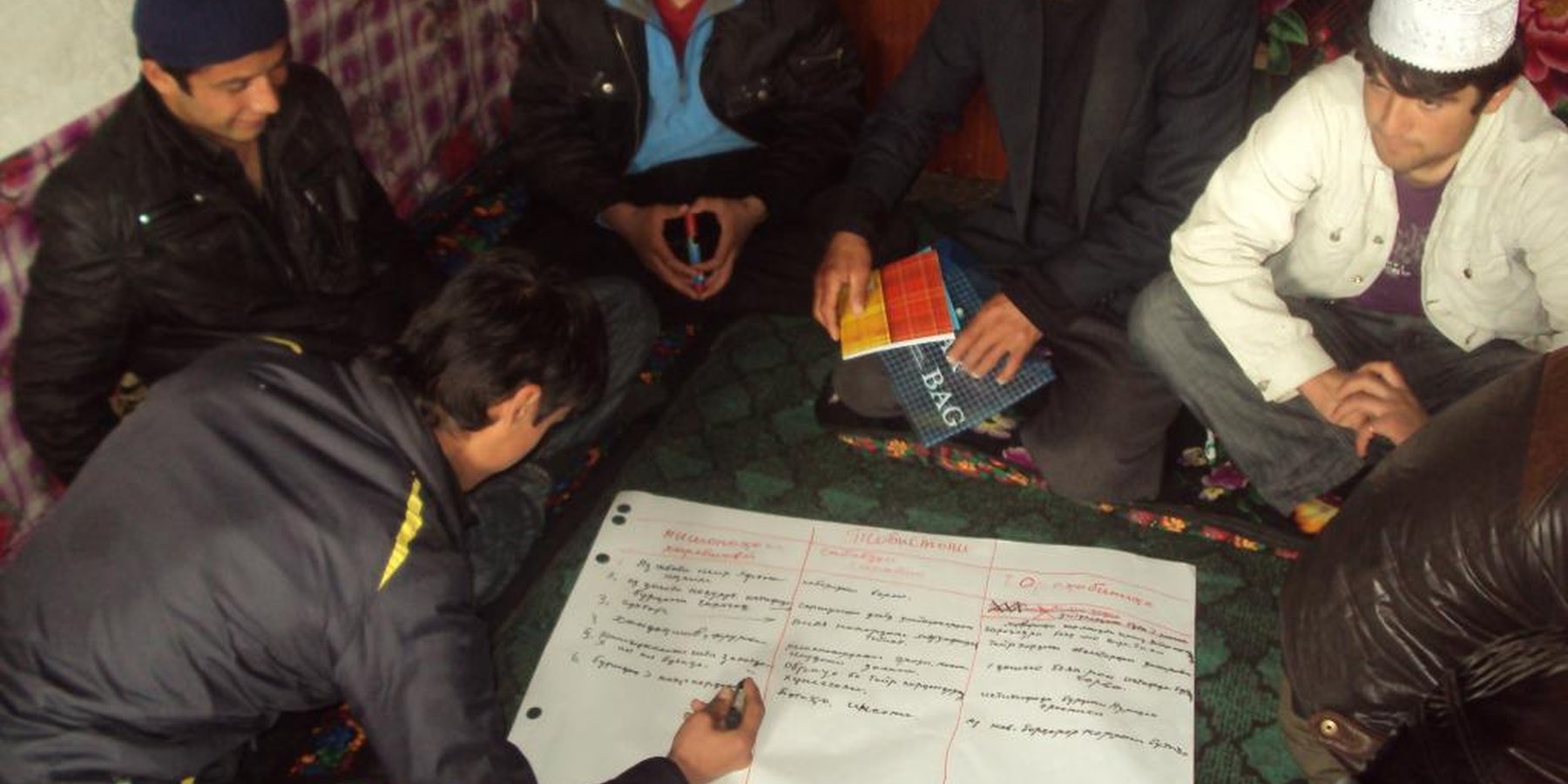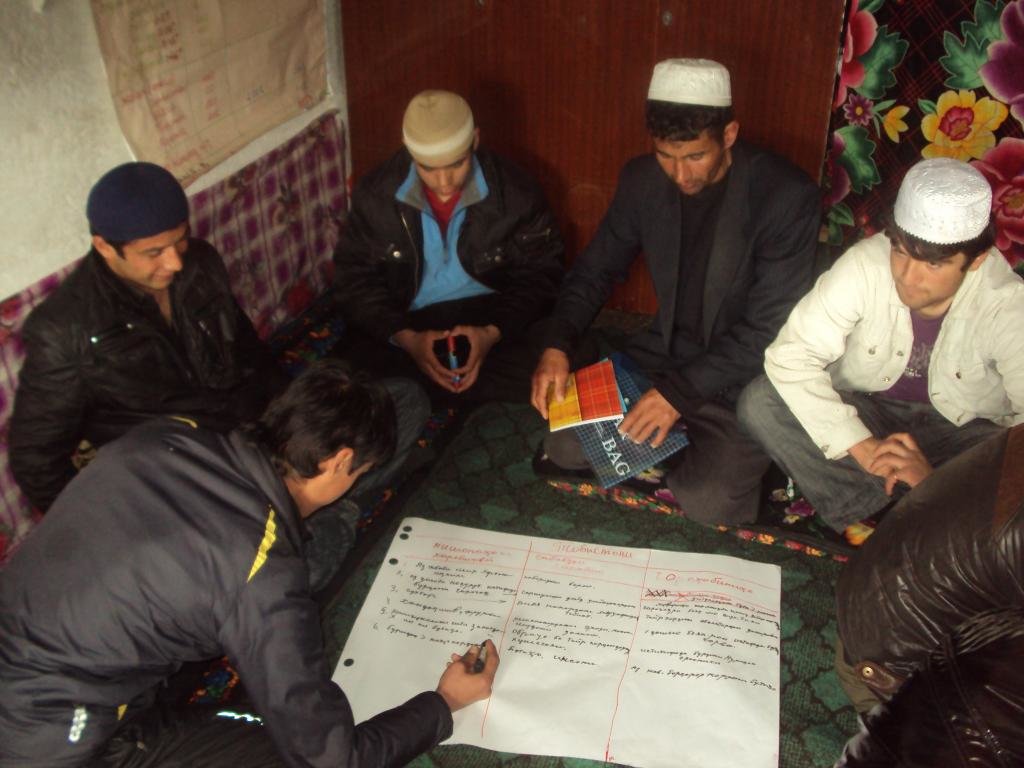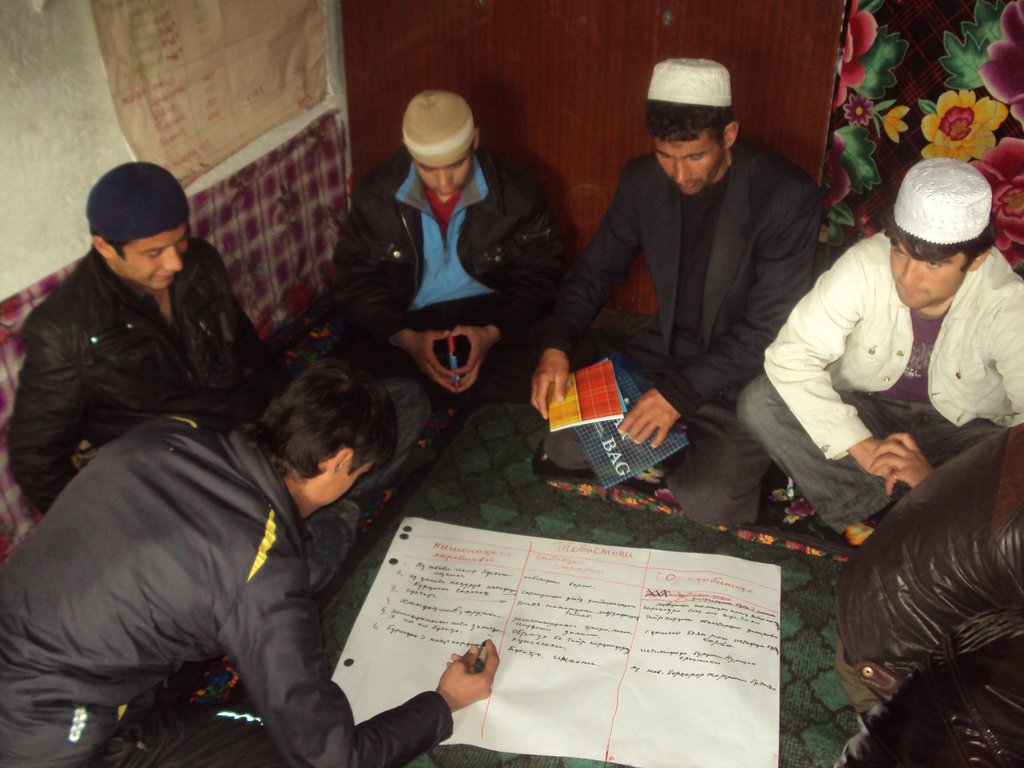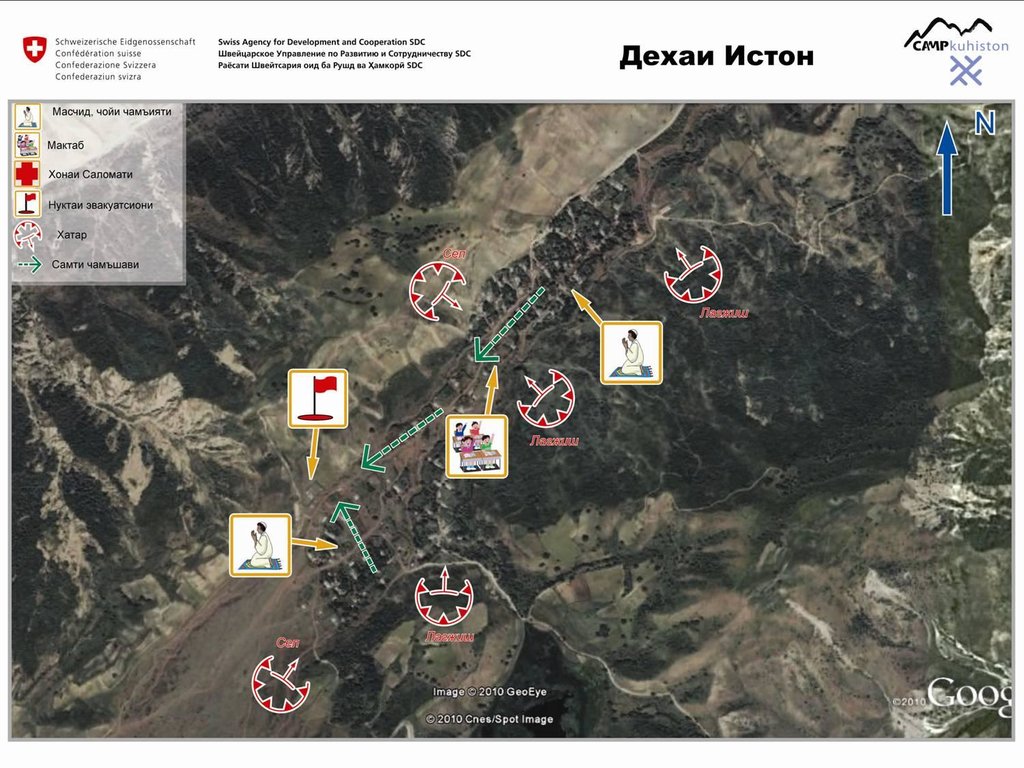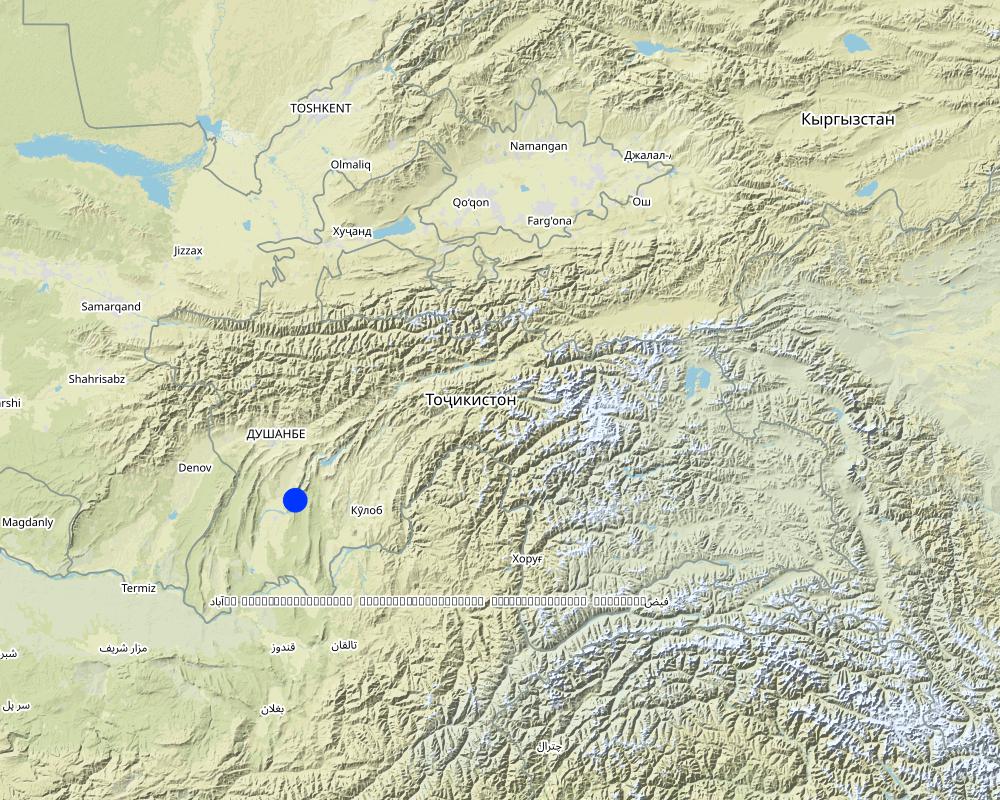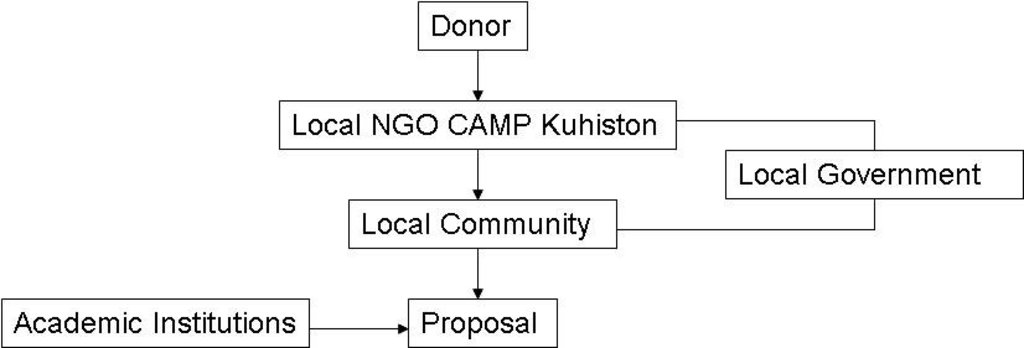Selection of SLM Technologies for Natural Disaster Risk Mitigation [Тажикистан]
- Шинийг нээх:
- Шинэчлэх:
- Эмхэтгэгч: shane stevenson
- Хянан тохиолдуулагч: –
- Хянагчид: David Streiff, Alexandra Gavilano, Joana Eichenberger
CAMP Kuhiston
approaches_2437 - Тажикистан
Бүлгүүдийг үзэх
Бүгдийг дэлгэх Бүгдийг хаах1. Ерөнхий мэдээлэл
1.2 Арга барилыг баримтжуулах болон үнэлгээ хийхэд оролцсон хүн эсвэл байгууллагын холбоо барих хаяг
ГТМ мэргэжилтэн:
ГТМ мэргэжилтэн:
Pocheov Mirzokubon
+992 44 601 55 05
CAMP Kuhiston
Rudaki avenue, Dushanbe
Тажикистан
Арга барилыг баримтжуулах/үнэлэх ажилд дэмжлэг үзүүлсэн төслийн нэр (шаардлагатай бол)
Pilot Program for Climate Resilience, Tajikistan (WB / PPCR)Арга барилыг баримтжуулах/үнэлэх ажилд дэмжлэг үзүүлсэн байгууллага(ууд)-ын нэр (шаардлагатай бол)
CAMP - Central Asian Mountain Partnership (CAMP - Central Asian Mountain Partnership) - КиргизстанАрга барилыг баримтжуулах/үнэлэх ажилд дэмжлэг үзүүлсэн байгууллага(ууд)-ын нэр (шаардлагатай бол)
CDE Centre for Development and Environment (CDE Centre for Development and Environment) - Швейцар1.3 WOCAT-аар баримтжуулсан өгөгдлийг ашиглахтай холбоотой нөхцөл
Мэдээллийг хэзээ (газар дээр нь) цуглуулсан бэ?
10/06/2011
Эмхэтгэгч болон гол мэдээлэгч хүн(хүмүүс) WOCAT аргачлалаар баримтжуулсан мэдээллийг ашиглахтай холбоотой нөхцлийг хүлээн зөвшөөрсөн:
Тийм
1.4 ГТМ-ийн технологийн асуулгын(д) суурь мэдээлэл(д)
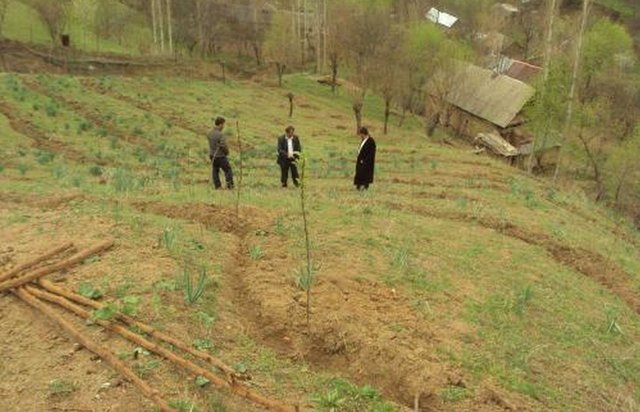
Planting of fruit trees to increase slope stabilisation [Тажикистан]
Planting fruit tree orchards to increase the stability of the steep loess soil slopes.
- Эмхэтгэгч: Gulniso Nekushoeva
2. ГТМ Арга барилын тодорхойлолт
2.1 Арга барилын товч тодорхойлолт
Community Based Natural Disaster Risk Management Workshops for identification of locations for the implementation of SLM technology to reduce the risk to the village from natural disasters.
2.2 Арга барилын дэлгэрэнгүй тодорхойлолт
Арга барилын дэлгэрэнгүй тодорхойлолт:
Aims / objectives: The main objective was to use a community based participatory approach to evaluate the risk from natural hazards and aid in the effective selection of location and types of SLM Technologies that could be implemented. The workshop systematically works through the natural disaster risk assessment process which includes evaluation of the natural and human triggers that can causes and contribute to specific natural disasters and subsequently rank the risk as either high/medium/low based upon a predetermined criteria. The assessment is repeated with the assumption the SLM mitigation has been implemented to evaluate whether the natural disaster risk would be reduced.
Methods: Several methodologies are used in this approach, these include the, display of posters and photos, watching documentary style DVD’s, playing awareness raising training games, and distribution of brochures to educate the communities on the causes and impacts of natural disasters so that they can then complete a systematic risk assessment process. This is undertaken within the community using interactive participatory training modules and experienced teachers. Once the technologies are decided upon a proposal form is completed and copies submitted to funding agencies and the local government. A Memorandum of Understanding is signed with the local government to endorse the approach and any subsequent implementation activities. The proposal is vetted by experts for modification and approval to ensure best practice and sustainable results.
Stages of implementation: The communities are selected based upon natural disaster statistics and a natural disaster workshop conducted for up to twenty members of the community. At the completion of the workshop the community produce several proposals for the implementation of SLM technologies that will reduce the risk from specific natural disasters. The proposals are reviewed by experts from the soil institute and horticulture institute to ensure they are practical, viable and effective before final submission to the donor for funding. The local government remains informed of the activities throughout the process and is provided with copies of the proposals.
Role of stakeholders: NGO CAMP Kuhiston were the overall project managers. CAMP designed and conducted training on Disaster Risk Reduction and developed the natural hazard risk assessment process that leads to the formulation of the SLM mitigation proposals. CAMP are also responsible for engaging the experts and providing information to the local government who are asked to support the process. The community has to actively be involved and design their own proposal and decide how they will contribute to the implementation process.
Other important information: Although this could potentially be a lengthy process it is important that the communities understand why they have chosen a specific SLM technology and the desired impact that will help secure their livelihoods.
2.3 Арга барилын зурагууд
2.5 Арга барил нэвтрүүлсэн улс орон / бүс нутаг / байршил
Улс:
Тажикистан
Улс/аймаг/сум:
RRS
Байршлын дэлгэрэнгүй тодорхойлолт:
Nurabad
Тайлбар:
SLM was implemented in 7 different locations covering 5 villages within Mujiharf and Hakimi jamoats of Nurabad District. The two main watersheds are shown in the googleEarth file.
Map
×2.6 Арга барилыг эхлэх, дуусах огноо
Эхлэх жилийг тэмдэглэ:
2009
Хугацаа дуусах жил (Хэрэв арга барил удаанаар ашиглаагүй бол):
2011
2.7 Арга барилын төрөл
- төсөл / хөтөлбөр дээр үндэслэсэн
2.8 Арга барилын үндсэн зорилго, зорилтууд
The Approach focused mainly on SLM with other activities (Natural Disaster Risk Mitigation)
The main objective was to educate the communities on the causes and triggers of natural disasters and how these triggers can be combated by SLM technologies. The approach concentrated on making the link between SLM technologies and causes of natural disasters. The risk assessment process helped communities understand how to evaluate the risk to their community from different types natural disasters and how these proposals would help reduce the risk presented by these types of natural disasters and also where is was the most effective and efficient use of time, finance and resources to reduce this risk.
The SLM Approach addressed the following problems: The stabilisation of degraded slopes that increased the risk to communities from natural disaster such as mud flows, landslides, and avalanches.
2.9 Арга барилын хүрээнд хэрэгжсэн Технологи/Технологиудад дэмжсэн эсвэл саад учруулсан нөхцлүүд
нийгэм / соёл / шашны хэм хэмжээ, үнэт зүйлс
- Хазаарлалт
There were major problems incorporating women into the initial disaster risk management workshops and trainings. Therefore, there was limited input into the mitigation proposal development process.
Treatment through the SLM Approach: In some villages workshops were held separately from the men using female trainers. However, due to low educational backgrounds there was a limited the level of participation. The field training during the implementation stage managed to capture the women
санхүүгийн нөөц, үйлчилгээний хүртээмж / боломж
- Хазаарлалт
There was initial concern that the farmers would not have finance to maintain the technology in the first year. The project was also conscious that fruit trees are subject to tax after three years.
Treatment through the SLM Approach: Farmers were provided with a minimal payment at different stages as the SLM technology developed.
Бүтэц зохион байгуулалт
- Хазаарлалт
The Jamoat wanted to have more say in the land owners who received the trees.
Treatment through the SLM Approach: The Jamoat were taken on site visits and were explained that the land was selected because of the hazard risk, not the land owner.
Хууль, эрхзүйн хүрээ (газар эзэмшил, газар, ус ашиглах эрх)
- Хазаарлалт
There was no formal documentation to show who was the owner of the land.
Treatment through the SLM Approach: There was an informal agreement between the land user, village members and jamoat.
The existing land ownership, land use rights / water rights moderately hindered the approach implementation Although there are land use certificates available for farms, there are problems with allocating specific parcels of land to one particular land user. Therefore this issue needs to resolved before a technology can be implemented.
3. Оролцогч талуудын оролцоо ба үүргүүд
3.1 Арга барилд оролцогч талууд болон тэдгээрийн үүргүүд
- Орон нутгийн газар ашиглагч / орон нутгийн иргэд
Five local communities (20 people per community)
Individual land users were involved in workshops and planning of SLM Technology
Community were involved in workshops
Women particpitaed less, since there are noticeable gaps in the education levels of the genders and women fulfill a more traditional role centered around the household.
This area suffers from high levels of labour migration with many of the men working abroad in countries such as Russia. In particular separate workshops were held for women to ensure that they participated in the approach.
- ГТМ-ийн мэргэжилтэн/ хөдөө аж ахуйн зөвлөх
Specialists were involved in selection of location of implementation
- ТББ
CAMP Kuhiston
CAMP Kuhiston developed the approach in collaboration with international support, land users, academic institutions, the local community and local government.
- Орон нутгийн захиргаа
Jamoats, Khukhmats
- Засгийн газар (шийдвэр гаргагч, төлөвлөгч)
Tajik Soil Institute, Horticulture Institute,
- Олон улсын байгууллага
Voluntary Services Overseas, University of Bern
Хэрэв хэд хэдэн оролцогч талууд оролцсон бол голлох төлөөлөгчийг зааж өгнө үү:
CAMP Kuhiston
3.2 Арга барилын янз бүрийн үе шатанд орон нутгийн газар ашиглагчид / бүлэглэлүүдийг татан оролцуулах
| Орон нутгийн газар ашиглагч / орон нутгийн иргэдийн оролцоо | Хэн оролцсоныг тодорхойлж, үйл ажиллагааг тайлбарлана уу | |
|---|---|---|
| санаачлага/идэвхжүүлэлт | үгүй | |
| Төлөвлөгөө | үгүй | |
| Хэрэгжилт | интерактив | Involved in the workshops and the development of the proposals |
| Мониторинг/ үнэлгээ | үгүй | |
| Research | үгүй |
3.3 Диаграм (хэрэв боломжтой бол)
Тодорхойлолт:
Organisation chart showing how the proposal for the SLM technology developed.
Зохиогч:
S. Stevenson (CAMP Kuhiston)
3.4 ГТМ-ийн технологи/технологиуд сонгох шийдвэр
Хэрэгжүүлэх Технологи/Технологиудын сонголтыг хийж шийдвэр гаргасан хүнийг тодорхойлно уу:
- голдуу ГТМ-ийн мэргэжилтнүүд, газар ашиглагчидтай зөвлөлдсөний үндсэн дээр
Тайлбар:
SLM specialists made the decision on the SLM technology, but consulted with the land users before implementation.
Decisions on the method of implementing the SLM Technology were made by NGO CAMP Kuhiston. NGO CAMP combined two funded projects to develop the approach for the implementation to the SLM technology with consultation from the Tajik Soil Institute and the Horticultural Institute.
4. Техникийн дэмжлэг, чадавхи бүрдүүлэх, мэдлэгийн менежмент
4.1 Чадавхи бэхжүүлэх/сургалт
Газар эзэмшигчид / бусад оролцогч талуудад сургалт явуулсан уу?
Тийм
Хэн сургалтанд хамрагдсан бэ:
- Газар ашиглагчид
- 20 members of five communities received training.
Хэрэв шаардлагатай бол хүйс, нас, яс үндэс, гэх мэт. нэмнэ үү:
The training on the risk assessment process included all members of the community, although due to the conservative nature of the community some trainings were divided between women and men.
Сургалтын хэлбэр:
- Ажил дээр
- курс дамжаа
Хамрагдсан сэвдүүд:
The initial training were on natural disasters, their casues and impacts. Subsequent training is the communites covered soil and water conservation and fruit cultivation.
4.2 Зөвлөх үйлчилгээ
Газар ашиглагчдад зөвлөх үйлчилгээ авах боломжтой байдаг уу?
Үгүй
4.3 Институцийг бэхжүүлэх (байгууллагын хөгжил)
Арга барилаар дамжуулан институц байгуулагдаж эсвэл бэхжсэн үү?
- Тийм, бага
Байгууллагууд бэхжиж, үүсэн бий болсон түвшин(үүд)-г тодорхойлно уу:
- Орон нутгийн
Дэмжлэгийн төрлийг ялга:
- чадавхи бэхжүүлэх / сургалт
Дэлгэрэнгүй мэдээллийг өгнө үү:
Two academic institutions were financially supported to undertake the review and evaluation process. Local NGO camp was supported by international finance to implement the approach and subsequent activities.
4.4 Мониторинг ба үнэлгээ
Мониторинг болон үнэлгээ нь арга барилын хэсэг үү?
Тийм
Тайлбар:
no. of land users involved aspects were ad hoc monitored by project staff through observations; indicators: The level of involvement in the workshops by the land users.
socio-cultural aspects were ad hoc monitored by project staff through observations; indicators: The level of engagement of the government and of the women in the process.
management of Approach aspects were ad hoc monitored by project staff through observations; indicators: International staff provided informal monitoring of the approach.
technical aspects were ad hoc monitored by other through observations; indicators: The academic institutions reviewed the proposals.
There were few changes in the Approach as a result of monitoring and evaluation: The risk assessment process was simplified and the format of the proposals was made more understandable to the participants.
There were few changes in the Technology as a result of monitoring and evaluation: The monitoring of the SLM technology means that for replication of the technology there would be changes in tree species selected.
4.5 Судалгаа
Судалгаа арга барилын хэсэг нь байсан уу?
Тийм
5. Санхүүгийн болон гадаад материаллаг дэмжлэг
5.1 ГТМ-ийн Арга барилын бүрэлдэхүүн хэсгийн жилийн төсөв
Хэрэв жилийн төсөв тодорхойгүй бол хягаарыг тодруулна уу:
- 10,000-100,000
Тайлбар (жнь: санхүүжилтийн гол эх үүсвэр / гол хандивлагчид):
Approach costs were met by the following donors: international non-government (International Consultants): 5.0%; international (Swiss Coorperation for Development and PAMS): 90.0%; local community / land user(s) (Local community support in kind): 5.0%
5.2 Газар ашиглагчдад санхүүгийн / материаллаг дэмжлэг үзүүлсэн
Технологи / технологийг хэрэгжүүлэхэд газар ашиглагчид санхүүгийн / материаллаг дэмжлэг авсан уу?
Үгүй
5.3 Тодорхой зардлыг даахад чиглэсэн дэмжлэгт (хөдөлмөрийн хүчийг оролцуулаад)
- Барилга байгууламж
| Ямар хөрөнгө оруулалт татаасаар олгогдсоныг заана уу | Ямар талбайн хэмжээнд | Тэтгэмж, урамшууллыг тодорхойлно уу |
|---|---|---|
| хэсэгчлэн санхүүждэг | ||
| хэсэгчлэн санхүүждэг | ||
- бусад
| Бусад (тодорхойлно уу) | Ямар талбайн хэмжээнд | Тэтгэмж, урамшууллыг тодорхойлно уу |
|---|---|---|
| training materials | Бүрэн санхүүждэг | posters, stationery and teachers salary |
Хэрэв газар ашиглагчийн хөдөлмөрийн хүч чухал байсан бол энэ нь аль хэлбэр байсан:
- сайн дурын
Тайлбар:
The approach was financed by funds from a donor.
5.4 Кредит
Арга барилын хүрээнд ГТМ-ийн үйл ажиллагаанд зориулж зээлд хамрагдсан уу?
Үгүй
5.5 Бусад урамшуулал, хэрэгсэл
ГТМ-ийн технологийг хэрэгжилтийг дэмжихэд ашигласан бусад урамшуулал, хэрэгсэл байсан уу?
Тийм
Хэрэв тийм бол, тодруулна уу:
Two academic institutions were financially supported to undertake the review and evaluation process. Local NGO camp was supported by international finance to implement the approach and subsequent activities.
6. Нөлөөллийн дүн шинжилгээ ба дүгнэлт
6.1 Арга барилын нөлөөллүүд
Арга барил нь ГТМ-ийн технологийг хэрэгжүүлж, хадгалахад газар ашиглагчдад тусласан уу?
- Үгүй
- Тийм, бага зэрэг
- Тийм, зарим
- Тийм, их
The approach provided the land users with training, saplings and construction material to use the land in a more sustainable way.
Арга барил нь эмзэг бүлгийнхнийг нийгэм, эдийн засгийн хувьд чадавхижуулсан уу?
- Үгүй
- Тийм, бага зэрэг
- Тийм, зарим
- Тийм, их
In some communities the women received specific training on the risk assessment process.
Арга барил нь ГТМ-ийн технологийг хэрэгжүүлэхэд саад учруулсан газрын эзэмшил / ашиглах эрхийг сайжруулахад чиглэсэн үү?
- Үгүй
- Тийм, бага зэрэг
- Тийм, зарим
- Тийм, их
Where the technology was implemented, it made the community address the issue of land user rights. It is now apparent who is responsible for the SLM technology and for payment taxes on the land.
Did other land users / projects adopt the Approach?
- Үгүй
- Тийм, бага зэрэг
- Тийм, зарим
- Тийм, их
Trainings were provided to other NGO's on the Natural Disaster Risk Assessment process and the development of proposals. The success of this has not been monitored.
Did the Approach lead to improved livelihoods / human well-being?
- Үгүй
- Тийм, бага зэрэг
- Тийм, зарим
- Тийм, их
It improved their knowledge through training on Natural Disaster and on fruit cultivation and through the distribution of accompanying brochures.
Did the Approach help to alleviate poverty?
- Үгүй
- Тийм, бага зэрэг
- Тийм, зарим
- Тийм, их
If the subsequently implemented technologies should help safeguard houses, land and livelihoods.
6.2 ГТМ-ийг хэрэгжүүлэх газар ашиглагчидын гол санаачилга
- үйлдвэрлэл нэмэгдсэн
fruit crops within 3-5 years
- Ашиг нэмэгдсэн (боломж), зардал-үр ашгийн харьцаа сайжирсан
land previously had limited economic output.
- нэр хүнд, нийгмийн дарамт / нийгмийн холбоо
Government decree to plant trees
- Байгаль орчны ухамсар
To decrease the communities exposure to natural disasters.
- well-being and livelihoods improvement
SLM technology should improve the livelihood of the land users.
6.3 Арга барилын үйл ажиллагааны тогтвортой байдал
Газар ашиглагчид арга барилаар дамжуулан хэрэгжүүлсэн арга хэмжээг тогтвортой хадгалж чадах уу (гадны дэмжлэггүйгээр)?
- Үгүй
Хэрэв үгүй эсвэл тодорхойгүй бол дэлгэрэнгүй тайлбар өгнө үү:
The land users are not in a position to mobilise all the parties involved in the approach.
6.4 Арга барилын тогтвортой/давуу тал/боломжууд
| Газар ашиглагчдын тодорхойлсон давуу тал/боломжууд |
|---|
| The process allowed me to make decisions concerning my own village. |
| The training improved my understanding of human and environmental causes of natural disasters. |
| Эмхэтгэгч, бусад мэдээлэл өгсөн хүмүүсийн өнцгөөс тодорхойлсон давуу тал/боломжууд |
|---|
| The approach involved a range of stakeholders and experts who were all able to actively contribute. (How to sustain/ enhance this strength: This could be enhanced by continued collaboration between all parties. ) |
| The approach included a community training element that benefited a broader range than just the land users. |
| The approach involved mobilisation of local government and community participation. (How to sustain/ enhance this strength: Further collaboration on technologies between the community and local government. The government to initiate replication in other communities. ) |
| The approach helped link the prevention of natural disaster with SLM practices. (How to sustain/ enhance this strength: The community developing further proposals for technologies and seeking funding to implement them.) |
6.5 Арга барилын дутагдалтай/сул тал/аюул болон тэдгээрийн хэрхэн даван туулах арга замууд
| Газар ашиглагч нарын тодорхойлсон сул тал/ дутагдал/ эрсдэл | Тэдгээрийг хэрхэн даван туулах вэ? |
|---|---|
| To provide more support on alternatives for SLM technologies. There must be new technologies that we are not aware of. | Further develop the modul to provide further illustrations of best practice. |
| Эмхэтгэгч, бусад мэдээлэл өгсөн хүмүүсийн өнцгөөс тодорхойлсон сул тал/ дутагдал/ эрсдэл | Тэдгээрийг хэрхэн даван туулах вэ? |
|---|---|
| The approach covers only a one year period, therefore if the SLM technology has difficulties, such as disease which is highly prevalent in this area, the land owner may not be in a financial position to rectify the issue. | A longer monitoring and support period. |
7. Суурь мэдээлэл болон холбоосууд
7.1 Мэдээллийн эх үүсвэр/аргууд
- Хээрийн уулзалт, судалгаа
- Газар ашиглагчтай хийсэн ярилцлага
Холбоос ба модулууд
Бүгдийг дэлгэх Бүгдийг хаахХолбоосууд

Planting of fruit trees to increase slope stabilisation [Тажикистан]
Planting fruit tree orchards to increase the stability of the steep loess soil slopes.
- Эмхэтгэгч: Gulniso Nekushoeva
Модулууд
Модуль байхгүй байна


